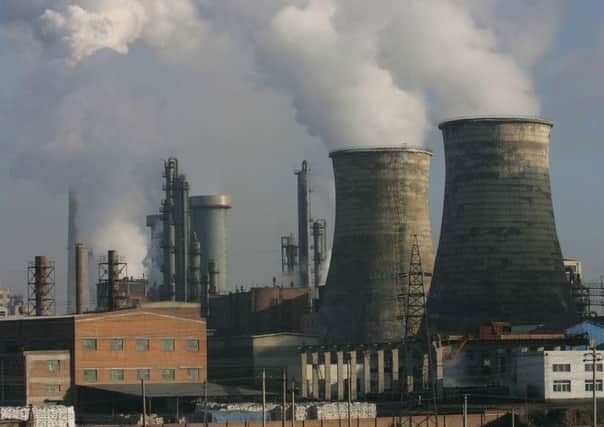Warmer seas will emit more greenhouse gas


Fresh insight into how the oceans can affect CO2 levels in the atmosphere shows that rising temperatures can indirectly increase the amount of the greenhouse gas emitted by the oceans.
Climate change campaigners have long warned how CO2 productions can have an effect on the temperature of the earth and therefore have a knock-on effect on the weather, changing the world’s eco systems and creating higher risks of natural disasters such as flooding, causing sea levels to rise and ice caps to melt.
Advertisement
Hide AdAdvertisement
Hide AdHowever, the latest study shows that warmer weather could create a vicious circle by creating more CO2 emissions from the sea, which in turn, could create more global warming.
Scientists from the University of Edinburgh studied a 26,000-year-old sediment core taken from the Gulf of California to find out how the ocean’s ability to take up atmospheric CO2 has changed over time.
They tracked the abundance of the key elements silicon and iron in the fossils of tiny marine organisms, known as plankton, in the sediment core.
Plankton absorb CO2 from the atmosphere at the ocean surface, and can lock away vast quantities of carbon.
Researchers found that those periods when silicon was the least abundant in ocean waters corresponded with relatively warm climates, low levels of atmospheric iron, and reduced CO2 uptake by the oceans’ plankton.
Scientists had previously suspected that iron might have a role in enabling plankton to absorb CO2.
However, this latest study shows that a lack of iron at the ocean surface can limit the effect of other key elements in helping plankton take up carbon.
“Iron is known to be a key nutrient for plankton, but we were surprised by the many ways in which iron affects the CO2 given off by the oceans,” said Dr Laetitia Pichevin, of the University of Edinburgh’s School of GeoSciences, who led the study.
Advertisement
Hide AdAdvertisement
Hide Ad“If warming climates lower iron levels at the sea surface, as occurred in the past, this is bad news for the environment.”
This effect is magnified in the southern ocean and equatorial Pacific and coastal areas, which are known to play a crucial role in influencing levels of CO2 in the global atmosphere.
The University of Edinburgh researchers believe their findings are the first to pinpoint the complex link between iron and other key marine elements involved in regulating atmospheric CO2 by the oceans.
Their findings were verified with a global calculation for all oceans.
The study, published last night in Nature Geoscience, was supported by Scottish Alliance for Geoscience Environment Society and the Natural Environment Research Council.
Earlier this year, the UN Intergovernmental Panel on Climate Change (IPCC) said the effects of warming were being felt everywhere, fuelling potential food shortages and natural disasters throughout the world.
It warned the effects were likely to be “irreversible” and could lead to wars, as extreme weather and poverty cause social unrest.
Meanwhile, figures published by the United Nations World Meteorological Organisation (WMO) last year showed that carbon dioxide levels rose more sharply in the past twelve months than in the previous decade.